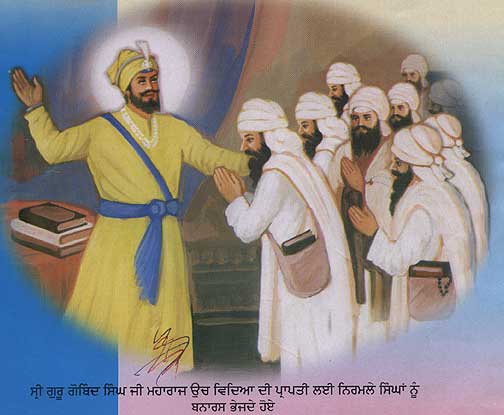

This article is given with courtesy of H. McLeod
The Nirmalasa, like the Udasis, commanded considerable influence under the Sikh rulers of the Punjab, but unlike them they have been able to preserve at least a measure of that earlier respect. By tradition the Nirmala order was founded by Guru Gobind Singh, who dispatched five Sikhs to learn Sanskrit. This is highly improbable, and the Nirmala order is scarcely mentioned in Sikh literature until the late eighteenth century. At that time the references rapidly multiply, largely in land grants and religious endowments made by Sikh rulers.

During the first four decades of the nineteenth century, the Nirmalas continued to prosper under Maharaja Ranjit Singh. As with the Udasis their centres were known as 'akharas', each headed by a mahant. Each akhara would accommodate varying numbers of celibate Nirmalas initiated by the mahant. Within it their time would be occupied in meditation, yoga and scriptural study. The books they were required to study would obviously include the Adi Granth, but they also spent much time on such Hindu works as the Vedas, the Shastras, Puranas and the Epics.
Although the Nirmalas are accepted as a part of the Panth, ascetic discipline and the strongly Hindu nature of their study deviate sharply from the teachings of the Tat Khalsa. Members of the order wear saffron robes and observe celibacy, and the teachings they receive and impart are strongly Vedantic. As itinerant preachers, they did much to commend Sikh teachings beyond the Punjab (particularly in such centres of Hindu pilgrimage as Hardwar and Allahabad), and although some of their doctrines met with strong disapproval from Khalsa, they were regarded cordially by Sanatan Sikhs. In the controversies that enlivened Singh Sabha days, their fortunes declined with those of the Sanatan Sikhs, but never to the point of being totally eclipsed. They still exercise some influence within the Panth particularly in the Patiala area.
Prominent writers like Bhai Santokh Singh, Tara Singh Narottam and Giani Gian Singh Ji were from this sect (Kanwal)